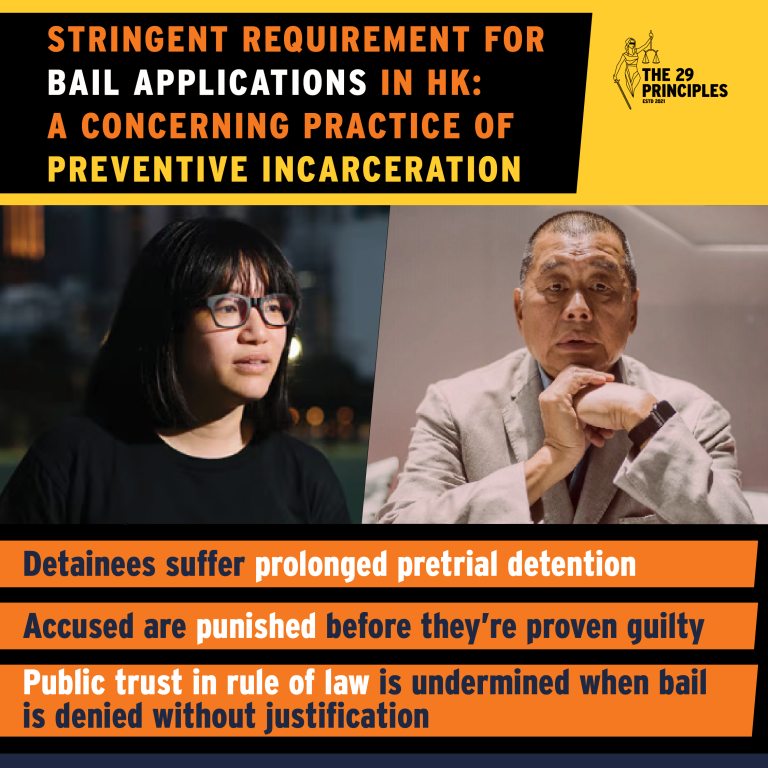
Bail Denials as a Form of Punishment
The denial of bail, particularly in the context of national security offences, raises concerns about the presumption of innocence and the right to a fair trial. By claiming, without justification, that the individual poses a risk to national security, guilt is assumed before the trial and the defendant is punished before they have been proven guilty. This departure from the principle of "innocent until proven guilty" undermines the fundamental principles of justice and due process.
Arbitrary Arrests and Preventive Incarceration
The strict denial of bail for NSL defendants may encourage a practice of arbitrary arrests for national security offences. It could become a practice that is not primarily aimed at securing convictions but rather at ensuring that the accused remain incarcerated for an extended period before their trial. By using lengthy pretrial detention as already a means of punishment, the authorities can effectively silence dissent and intimidate potential activists.
Implications for the Justice System
The denial of bail is becoming the default approach for NSL defendants. This undermines the credibility and fairness of the justice system in Hong Kong. The presumption of innocence, a cornerstone of any democratic legal system, is compromised when bail is consistently denied without sufficient justification. Furthermore, the practice of preventive incarceration erodes public trust in the judicial process, making it difficult to maintain the perception of a fair and impartial system.
